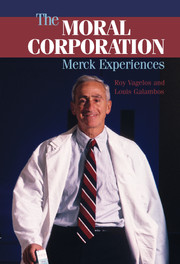1 - The Puzzle
Published online by Cambridge University Press: 05 June 2012
Summary
I was the head of research and development at Merck & Co., Inc., when two of the company's scientists dropped a puzzle in my lap. The puzzle had an important ethical component, but that was not what concerned the scientists who had come to see me. Bill Campbell was a parasitologist who was involved in the discovery and development of ivermectin, a remarkable substance that was active against the worms that plague livestock as well as household pets. He and Mohammed Aziz, an infectious disease specialist, weren't concerned about cattle or horses, however. They had a more intriguing problem in mind. They wanted to spend some of the company's money to see if ivermectin could be used against the parasite that causes river blindness in people.
Mohammed had a good, firsthand knowledge of the disease. He had worked with the World Health Organization (WHO) in Sub-Saharan Africa, where the black fly breeds in the continent's fast-flowing rivers – hence river blindness. The flies pick up a tiny parasite (microfilariae) from infected humans and spread it to others. In the victim's skin, the parasites develop into adult worms that can reach two feet in length. They produce millions of microfilariae that crawl through the skin and produce intolerable itching. Even worse, when they enter the eyes, they cause inflammation and then scarring that leaves the victim blind. As Mohammed and Bill explained, there was a good chance that ivermectin might be the first effective treatment for this terrible disease. The drug, they said, was working against a related parasite that attacks horses.
- Type
- Chapter
- Information
- The Moral CorporationMerck Experiences, pp. 1 - 3Publisher: Cambridge University PressPrint publication year: 2006

